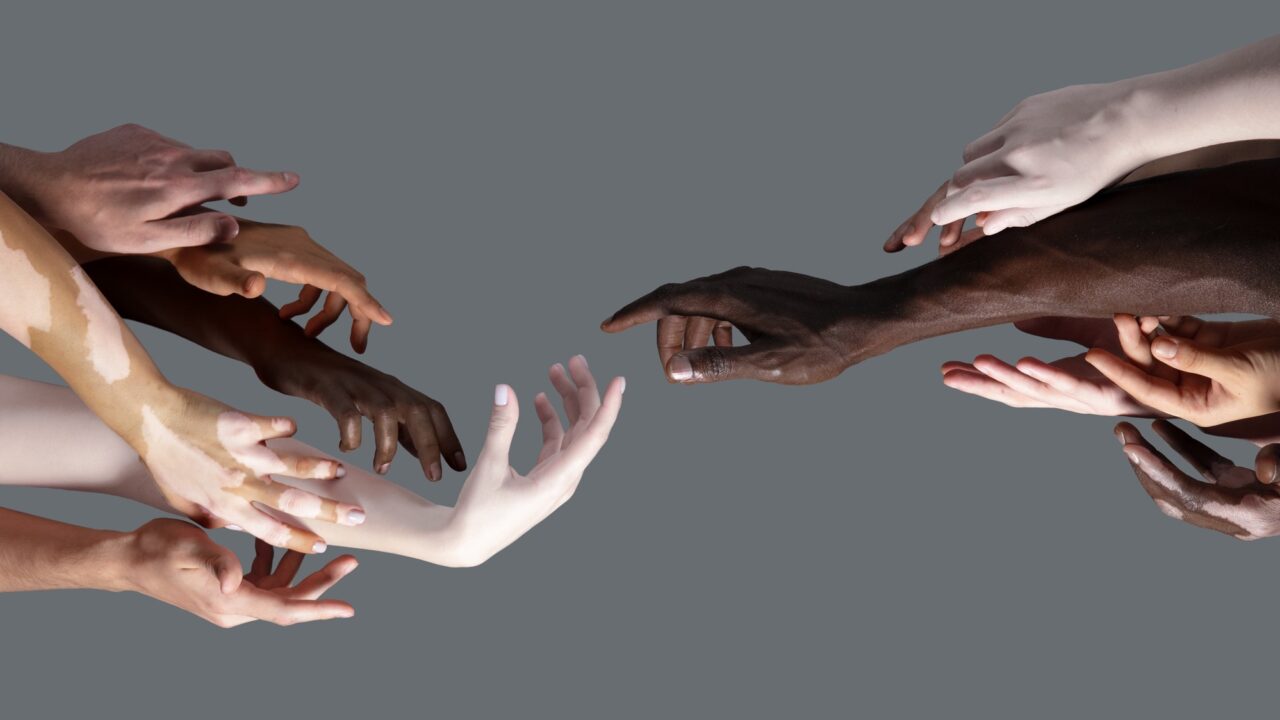I see Hahrie Han as one of the most insightful social movement scholars of our time, so I was a little surprised when I found out she was writing Undivided: The Quest for Racial Solidarity in an American Church, a book about an evangelical megachurch. I was hoping that she’d be working on another book about a political organization, something useful for organizers, especially in a second Trump era. And it turns out, she was.
While many institutions –– especially religious ones –– are buckling in our age of alienation, megachurches are growing at an astronomical pace. While church attendance is declining across the United States, megachurches, defined as any Protestant Christian church with at least 2,000 weekly attendees, reported growing an average of 34 percent from 2015 to 2020. While the book isn’t singularly aimed at informing organizers, any organizer reading under the haze of a second Trump presidency will find vital lessons on building trust, community, and transforming a world that seems hostile to our ideals. They’ll also likely get in a much-needed cry.
Undivided follows four members of the Crossroads megachurch between 2016 and 2023 and is based on interviews, surveys, and other research conducted by Han after she was drawn to an organizing campaign connected to said church. Crossroads routinely brings in 20,000 congregants each Sunday –– peaking at half a million in online sessions at the height of the COVID-19 pandemic –– with its main campus and the focus of the book rooted in Cincinnati. The church is predominately white and conservative-leaning, but diverse enough that pockets of leftwing programming do exist. The book’s name is derived from a special program that Crossroads began in 2016.
Undivided is a six-week anti-racist program in which members of the church are invited to share their experiences with race while connecting emotionally with others. 1,200 participants joined the first cohort and were divided into smaller groups of 6-8, with two facilitators per group. It has a few things in common with corporate diversity, equity, and inclusion (DEI) courses, but is far more focused on building connections between participants and nudging them toward social transformation. In each session, members were given space to vent about how race impacted their lives, ranging from white people talking about having neo-Nazis in their family to Black members discussing how they didn’t always feel welcomed by evangelicism’s close relationship with white supremacy and the forces coalescing behind Donald Trump.
Trust was built over time as participants gradually recognized each other’s struggles and humanity. The space allowed them to challenge one another, pushing one white man to coming to terms with the ways he and his family let down his adopted Black brother. After an activity in which they were asked to respond to a picture prompt of a Black child entering a school bus with white children, one Black woman, named Sandra, began to reflect on her relationship to Blackness and the ways she’s altered herself to survive in predominantly white spaces. These realizations eventually pushed her to leave her white husband after a final argument essentially about whether or not George Floyd deserved to die and the growing anxiety that her husband was treating her like a slave.
Some of these stories are heartbreaking to read. And while not every group engaged in deep vulnerability, many of those that did ended up building strong bonds between the participants. These sharing sessions were accompanied by presentations from the leaders of the program, combining community building with political education on the realities of race in the United States and Cincinnati in particular. Participants were also emboldened to share dinners with each other outside of the space.
After the six-weeks, participants were provided several opportunities to volunteer politically, including for a prison ministry program or for an effort to pass a ballot initiative to create universal pre-k aimed at the city’s working class Black population. This initiative passed, despite many of those same voters simultaneously electing Donald Trump to the presidency.
The stories the subjects of the book shared, and the design of the Undivided program itself, contain a lot of lessons for anyone who is concerned with our state of affairs and Trump’s re-election.
Two white participants, Jess and Grant, are examples of how radicalized people can navigate workplaces and coworkers who do not share their ideals immediately. Grant, who has an adopted Black brother, worked for the prison system and slowly came to terms with his role in maintaining the carceral racial order. He first attempted a path of reform, but was met with resistance and deepening unease with his role in our new Jim Crow. He eventually left his job at the prison to work for the church, creating programs to continue Undivided’s work of deepening Crossroad’s commitment to racial justice.
Jess is a social worker whose colleagues scoffed at the notion of racism while doing a job that has a real impact on the lives of poor Black people. She also worked with and built close bonds with two police officers. Instead of leaving her job, she gently found ways to influence the cops and her boss to engage in less discriminatory practices. She noticed that her coworkers disproportionately labeled Black fathers within their database as “hazards” and convinced her boss to review the system and the tags that would likely followed those men around for the rest of their lives.
I imagine there are many Americans dealing with workplaces, families, and places of worship that have been recently revealed to be more friendly to white supremacy than they once believed. While retreating into one’s already chosen social circle or into extremely curated left wing spaces may be a reasonable knee jerk response, Jess and Grant provide important alternatives. Grant first attempted to transform his workplace by humanizing incarcerated people in the eyes of guards and the general public. Jess successfully eliminated a racist practice at her job and helped minimize potential racist behavior from two police officers. Even after Grant left his job, he joined another institution that didn’t fully match his values and committed to transforming it and its tens of thousands of members.
These strategies recall the “long march through the institutions” strategic framework developed by German socialist sociologist Rudi Dutscke. Often attributed to Antonio Gramsci, Rudi’s march involves leftwing revolutionaries joining important institutions and workplaces to transform them into tools of social movements and seeding grounds for new revolutionaries when the conditions of a revolution are not yet present. This is essentially what Jess and Grant are engaged in, albeit in a less explicitly revolutionary way. As much as we need to dissect and dissolve certain kinds of institutions, it is just as necessary to build up and maintain institutions that have such an influence on peoples’ lives and to make changes to those institutions until we have the clarity and capacity to topple systems.
Undivided contains many other critical insights for organizers, from the importance of collective rituals like adult baptism to the vital use of entertainment and irreverence as a means of making spaces more enjoyable and ideological content more digestible. Han dives deep into the history of evangelicalism and how the modern right-wing evangelical movement shifted strategies from spreading their gospel through television and radio to committing themselves to grassroots organizing and pushing church leaders to take over local Republican organizations. Even before the movement’s successful alliance with Trump, evangelicals mastered the use of small affinity groups within churches to deepen commitment and keep members engaged through clear roles.
And I think that is the most important lesson from the book: groups and projects like Undivided can help people build connections with one another, and as Han writes “[c]onnection builds commitment.” These commitments and connections are what Jess and Grant relied on when faced with hostility at work and what held Sandra as she challenged and then divorced her husband. Undivided engages in the kind of personal and communal trust building that Daniel Hunter wrote about in his recent article prescribing ways of resistance and survival under Trump. They serve as home bases for those engaged in social transformation, and can be ideal building blocks or components of larger revolutionary political projects.
The book is also an emotional journey that captures bonds built and broken. The story resonates in a country in which many Americans have experienced their own lives shattered personally over the last decade or so, losing friends and family to COVID, drug overdoses, and rightwing ideology. I cried a few times reading through the vulnerable stories, like Grant realizing that he’d been forcing his brother through the painful process of straightening his hair for his entire life. They are just human moments that feel hard to come by in our polarized, increasingly impersonal, world. And Han simultaneously has ensured the book answers the kinds of questions organizers may ask between their tears: How was Undecided created? How is it structured? And what motivated her different cast of humans to get involved in the first place?
Given the recent election and the dire state of organizing as it pertains to the left still not having the level of base we need to win, I believe this book is brimming with critical lessons on what it truly takes to produce missionaries of movements. Han gave us a gift, filled with insights and stories that will remind readers of how hard and beautiful it is to be human, and how recognizing that can unlock the potential of our movements.

